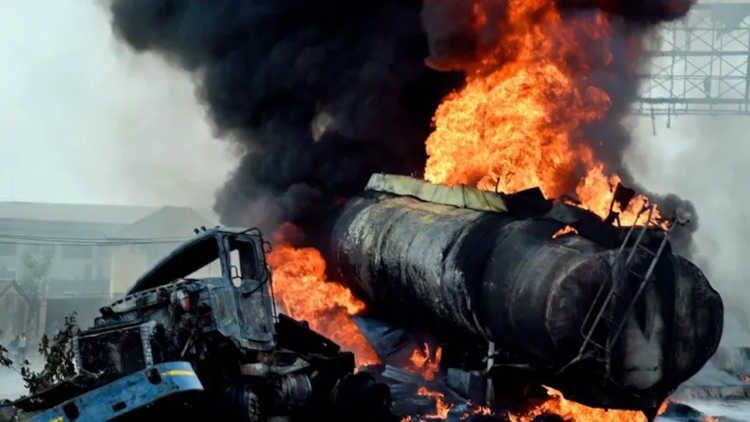The decision by the Nigerian Midstream and Downstream Petroleum Regulatory Authority (NMDPRA) to ban 60,000-litre fuel tankers from Nigerian roads starting 01 March, 2025, is a response to the rising number of oil truck accidents in Nigeria, but it should go beyond that.
Development Diaries reports that according to the NMDPRA, the decision was in order to mitigate truck-in-transit incidents, some of which had resulted in infernos and several deaths.
Over the previous 16 years, these accidents have led to about 1,896 fatalities, according to data analysed recently by Anadolu.
According to the NMDPRA, no truck with over 45,000 litres in capacity will be allowed to load products by the fourth quarter of 2025.
While the policy aims to improve road safety by reducing the risks associated with heavy-duty petroleum tankers, stakeholders have raised concerns about its economic impact.
The National Association of Road Transport Owners (NARTO) argues that compliance will lead to a loss of N300 billion in investments, affecting thousands of truck owners and operators.
Furthermore, the ban does not address underlying issues such as poor road conditions, inadequate driver training, and mechanical failures, which also contribute to tanker accidents.
A key concern is that reducing tanker capacities alone may not significantly curb road accidents if other critical factors remain unresolved.
The condition of Nigerian roads, which are often riddled with potholes and structural weaknesses, plays a crucial role in the frequency of accidents.
Similarly, vehicle maintenance standards and the enforcement of safety regulations among drivers are inconsistent, further increasing the likelihood of crashes.
Without a comprehensive strategy that includes infrastructure development, better regulatory enforcement, and improved driver education, the ban on high-capacity tankers may offer only partial relief while creating new logistical and economic challenges.
Beyond banning 60,000-litre tankers, the NMDPRA should prioritise long-term sustainable measures.
Additionally, the NMDPRA, along with other agencies like the Federal Road Safety Corps (FRSC) needs to enforce stricter safety standards, including regular vehicle inspections and mandatory certification programmes for tanker drivers.
Ultimately, addressing the issue of fuel tanker accidents requires a much more diverse approach than a single regulatory ban.
Strengthening road infrastructure, enforcing maintenance standards, and exploring alternative transport options such as pipelines and railways will create a more sustainable solution.
While the ban may serve as a short-term safety measure, Development Diaries calls on NMDPRA, FRSC, and other regulatory agencies to ensure it is accompanied by broader reforms to ensure long-term improvements in petroleum product transportation safety in Nigeria.
Photo source: AFP








